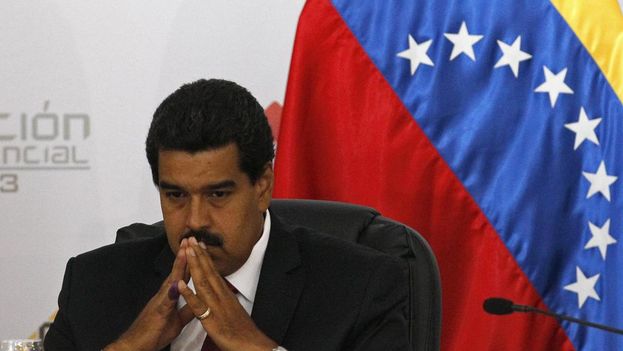
![]() Generation Y, Yoani Sanchez, Havana, 7 December 2015 — This time neither deception nor fear worked. Like a woman long threatened by an abusive husband, Venezuela has slammed the door on Chavismo and done so with determination. From now on, governing will be an ordeal for Nicolas Maduro. With a party at an absolute disadvantage in parliament, Hugo Chavez’s successor can only impose his presidential will by violating his own laws.
Generation Y, Yoani Sanchez, Havana, 7 December 2015 — This time neither deception nor fear worked. Like a woman long threatened by an abusive husband, Venezuela has slammed the door on Chavismo and done so with determination. From now on, governing will be an ordeal for Nicolas Maduro. With a party at an absolute disadvantage in parliament, Hugo Chavez’s successor can only impose his presidential will by violating his own laws.
The people, the same people that the president of the United Socialist Party of Venezuela (PSUV) invoked from the platform to justify his misdeeds, has said no to 21st Century Socialism and the national project promoted by the ruling party. A flat refusal against a political force under whose management the South American nation has been plunged into insecurity, shortages, corruption and unsustainable polarization.
People are fed up. Tired of so much tense discourse, of fear in the streets, of the constant emigration of the young and of the instability that gnaws at everything and that in the last year has gotten worse. The voters also used their votes to penalize a party that hasn’t known how to govern for everyone, but only for a part of society, which has systematically rallied against those who think differently.
With the tool of the polls in their hands, Venezuelans have pushed change in a peaceful way, without stepping into the trap of violence or engaging in an armed revolution. Maduro has reaped, thus, the fruits of his mismanagement. His declarations prior to the elections, among which was the threat of fight from the streets if his party was defeated, only to the determination of a social decision that was already made. With his words, he finished digging the grave of his own executive authority.
Because there is a moment when the abused realizes that the abuser is just another frail human being, someone who can be defeated. That moment arrived for the Venezuelan people this December 6, as they demonstrated with their votes that Chavismo is neither eternal nor popular. What happened confirms the loss of the fear with which a 17-year authoritarianism had permeated the country, the sick relationship of dependency and dread with which it wanted to keep its citizens paralyzed.
The election results also go against the Plaza of the Revolution in Havana. In the dark intricacies of that power that has spent more than five decades without calling elections, the figure of Hugo Chavez was molded, and it tried to do the same with Nicolas Maduro. But the move backfired because it came up against a population that reacted, an opposition that knew how to unite despite its differences, and an international community that closed ranks in criticism of the methods of the PSUV.
The axis financed from Miraflores and symbolized by the political bravado of Chavez and the mediocre arrogance of the current president, is beginning to disarm. Venezuela already sees the way out and is dragging behind itself an island that still does not dare to stop the blows of an abusive government, to close the door and leave it outside the national future.
